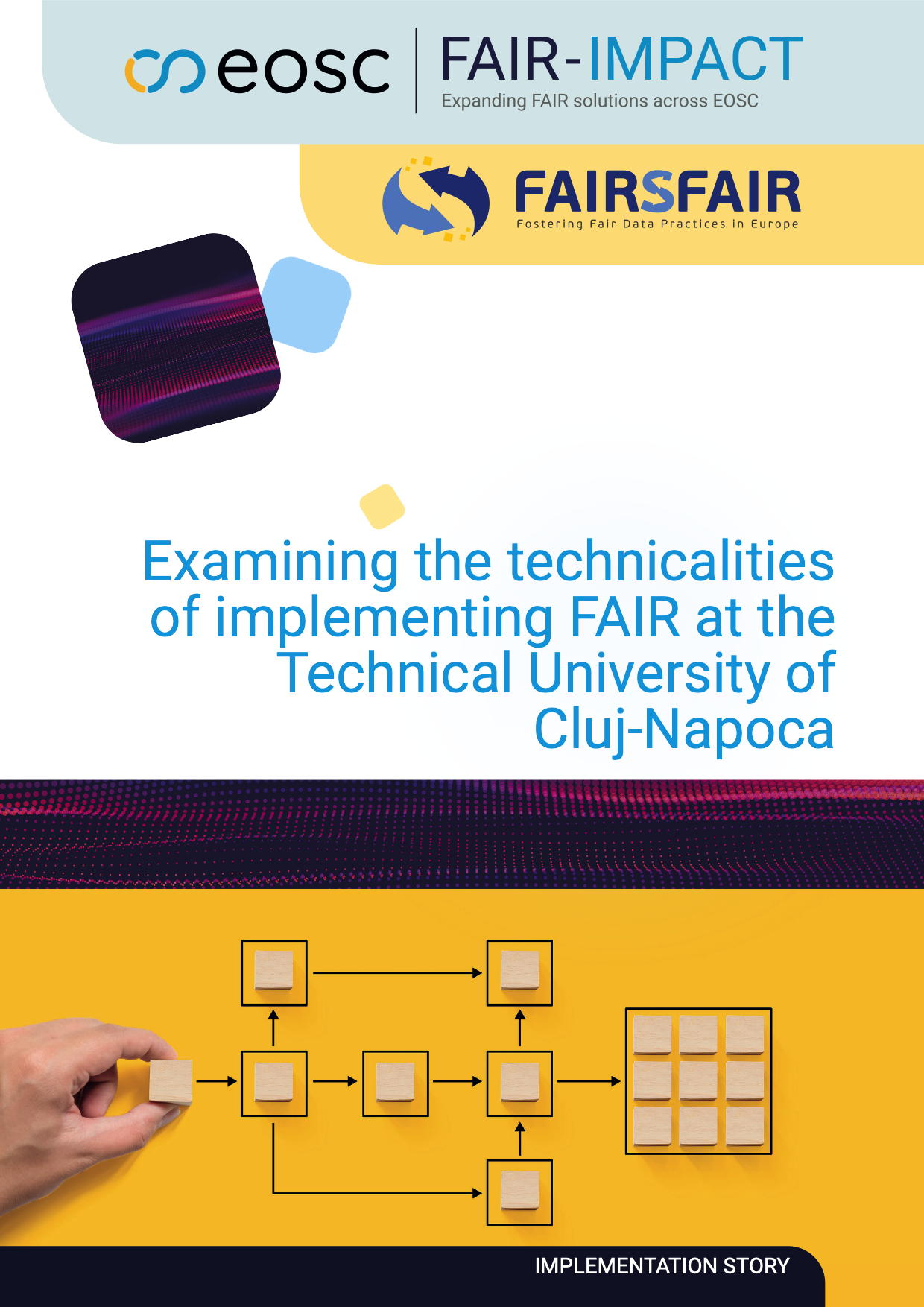Examining the technicalities of implementing FAIR at the Technical University of Cluj-Napoca
When the Technical University of Cluj-Napoca applied to join the support Programme for Repositories and Data Service Providers, they had the central aim of learning more about how to define and implement a FAIR enabling data repository for cultural heritage objects. Over the course of the programme they used this support as an opportunity to define a ‘FAIR ready data repository’ and take time to examine technical questions around FAIR implementation, especially in relation to Persistent Identifiers (PIDs). In this FAIR Implementation Story we learn how a highlight of the programme was making a valuable connection with the Digital Repository of Ireland – another repository that provides long-term preservation and access to cultural digital data.
FAIR-IMPACT’s Support Programme for Repositories and Data Service Providers aimed to help participants better understand their drivers for becoming more FAIR-enabling, self-assess their current FAIR-enabling capacity, develop an action plan with considerations for stakeholder engagement, and to work on implementing this. The support programme ran between September 2024 and March 2025, during which six virtual workshops and continuous dedicated and tailored mentoring support was offered to help participants identify and establish their unique journey toward becoming more FAIR-enabling. This FAIR Implementation Story outlines the specific aims and actions of the Technical University of ClujNapoca in relation to their participation in this Support Programme.
Authors:
- Teodor Stefanut, Technical University of Cluj-Napoca
- Victor Bacu, Technical University of Cluj-Napoca
- Deborah Thorpe, DANS
- Salomé Landel, Centre National de la Recherche Scientifique
